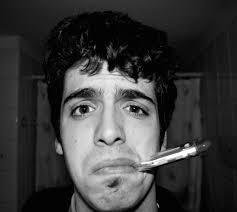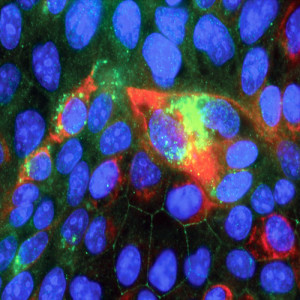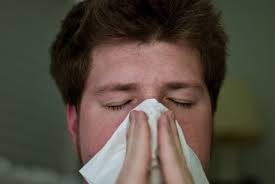Main Menu
Latest Blog Entry
User login
An athlete’s guide to avoiding the flu.
Intro
 Getting ill sucks! We’ve all been there, tucked up in bed shivering and feeling sorry for ourselves. Here is my guide to avoiding the flu.
Getting ill sucks! We’ve all been there, tucked up in bed shivering and feeling sorry for ourselves. Here is my guide to avoiding the flu.
Nobody enjoys being ill and it can have a terrible effect on an athlete’s fitness, training and performance. Not only does having a blocked nose reduce performance, it can also affect teammates, who catch the illness off you.
If you want to avoid getting the flu, read on.
(N.B. the advice below applies to many viruses, including the Coronavirus).
How is infection spread?
The main ways that infections are spread is through touch, food that is not cooked properly (or shared with an infected person) and aerial dispersal.
The major problem is that people do not need to be showing symptoms of illness to be infectious – they can just be carrying the disease on their skin without becoming ill with it! Think about that when you next shake hands with someone (I’m not saying ‘don’t shake hands; that’s rude, what I do suggest is that you follow the tips down below to reduce your chances of getting ill).
Additionally, when people cough and sneeze, droplets that can contain contaminants are released into the air. The larger the droplet, the more infection it can contain. However, larger droplets are not airborne for as long as smaller droplets from the sneeze. All of this infection containing moisture can be inhaled by a person nearby or it can land on surfaces that other people touch. (as seen in this NHS advert)
Viruses can live on surfaces for very long periods of time. This means that you can contract an infection from somebody by touching the area where their sneeze landed hours after they coughed! Think of how many things you touch daily without thinking about it. If you’re reading this on a computer, do you know who touched the keyboard and mouse before you and how clean they were?
Once the infection is on your hands it has to travel to a place in the body where it can gain entry such as the mouth, nose, eyes or an open wound in the skin. A bad habit such as biting nails makes this transfer of infection almost guaranteed.
How to reduce the likelihood of infection
There are some basic things that everyone can do to reduce the likelihood of catching an illness or from passing one onto others.
- Check that your vaccinations are up to date and get the annual flu vaccination. If your immune system in primed to fight the disease it is much less likely that you will become ill. Some supermarkets and pharmacies now offer flu vaccinations in autumn. I recently had mine done in Boots.
- Wash your hands thoroughly and regularly with soap. Then use a paper towel, your elbows or, if necessary, your sleeves to turn off the tap. Try to avoid touching your face if you haven’t washed your hands first. Use antibacterial alcohol hand wash gel when soap and water are not available. This video shows how to was your hands properly.
- When in a public place, try not to use your hands to push doors open and instead, open the door with a foot or by leaning gently against it with your shoulder. If you have to pull a door open or turn a handle, try and grasp it at the periphery to avoid making contact with the surface in the same place that everyone else does.
- If you have to cough or sneeze, catch it in a tissue or direct it towards the crook of your elbow, avoid your hands.
- After making physical contact with a person or object with which you do not know how clean they are, stop yourself from touching your face until you get the chance to wash your hands.
- Get a healthy amount of sleep each night and ensure that you are including plenty of vitamins and minerals in your diet to help your immune system.
-
Avoid sharing things such as pens, food and towels with other people, especially if you know they, or someone close to them, are ill.
- If someone is sneezing on public transport or in a public area, try and stay behind them so you are out of the direction of their cough mist.
- In a hotel, ensure that your room has been thoroughly cleaned and that new bedding and towels have been provided.
- If somebody you know is ill. Stay clear of anything they have touched.
- Check any medication that you plan to take does not contain prohibited substances. This can easily be done on Global Dro for most products purchased in the UK. That really effective cough medicine is not worth taking to get better if you commit a doping violation in the process.
Additional personal tips.
I find that having a ‘health pack’ in my rucksack that I take everywhere with me. This contains:
- toothbrush and toothpaste,
- alcohol based mouthwash,
- Vicks first defence nasal spray (which is not prohibited at the time of writing this article if the product is from the UK),
- alcoholic hand wash gel,
- tissues
- tub of Vaseline.
This means that I can keep my hands and mouth clean on the go.
I use the nasal spray as a prevention tool in public places and the Vaseline to cover cracked lips. The tissues can be used both to catch sneezes and to dry my hands whilst I find the nasal spray is very useful on public transport when I cannot get away from someone sneezing near me. If you purchase travel versions of these products they will be small enough to be taken on a flight in hand luggage as part of your liquid allowance.
People’s hands are normally the main cause of infection. If you have the discipline to wash yours thoroughly and regularly then you are much less likely to catch a cold this winter.
Chris Hay
Fencer and aspiring Modern Pentathlete. Biology graduate. Excelsior athlete since 2009.
Further reading:
- How to prevent illness by boosting your immune system
- The best fruit and veg to eat for health
Client Testimonials
 Bath University
Bath University
"James worked with the Exeter and Taunton based Southwest Talent Centre scholarship athletes. He is deeply knowledgeable about strength and conditioning and has excelled at working with young athletes. His sessions are challenging and fun and he has succeeded in blending a group of athletes from a diverse range of sports into a cohesive training group.
More




Comments
Thanks for writing this Chris, really useful tips.
I have yet to see evidence on mouth wash actually preventing infection: apart from what Listerine are promoting.
The “fist bump” is our end of session farewell for the hygiene reasons you mention.
Good job.
Thanks Chris good strategies to use and pass on. I have only recently used the handwashing technique after seeing a infogram in a school.